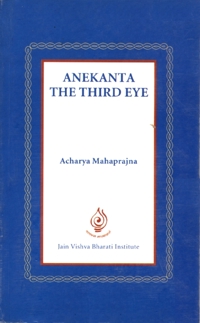
There was once a potter. He had two daughters. One was married into a family of farmers and another into a family of potters. Both were happy. One day the potter went to meet his daughters. Both of them were in the same village. He arrived at the house of the girl married into the farmer's family.
He exchanged greetings and on seeing the daughter unhappy asked, “Child, why are you sad?" The daughter replied, "Father, it is time to go to the fields. But it is not raining. Nowhere in the sky can I see clouds. It will be a great problem if it does not rain. This worry is tormenting me. If it rains soon, it will be good. Please pray to the Lord for rains." The potter then left for his second daughter's house. Greetings were exchanged. The daughter said, "Father all the rest is well, but it is the rainy season now. The pots are in the kiln. If it rains they will all crumble and become mud. Father please pray to the Lord that it does not rain now. Not now. Not till our pots are baked."
The potter wondered, "Should I pray for rain or no rain? Both my daughters have presented two opposing interests. To one rain will be beneficial, to another it will not be so."
This world is full of opposing qualities. Each one's personal desires are different. That which is beneficial to a mill owner is different from that which is beneficial to a labourer. Different things benefit a boss and different things are beneficial to his servant or employee. There is conflict between the beneficial aspects of both. This is not a conflict that will end, though attempts are being made to resolve it. But then how will it be resolved? This conflict is built into our very nature. It is intertwined with the very structure of our lives.
So how can it be resolved? Sociologists have termed this the struggle for survival... in life conflict is inevitable. Conflict indicates development. If there were no embers, there would be no hope of light or of development. When the embers burn then there is light. How to put an end to this conflict? It is a very grave question concerning opposing benefits and opposing personal interests. The whole world is filled with the conflict of opposing benefits. There is no averaging out between two people's benefits. A bachelor thinks that if everybody became celibate, it would be good. Some wonder how creation would continue if everybody became celibate? Both their thoughts are in opposition to each other. If, for example, somebody wanted to be initiated into monkhood, there would be some who would wonder what would happen if everybody got initiated into monkhood. The following event took place. A young man wanted to become a monk. On hearing of his desire, the whole village rose in protest. Those who knew him also protested, those who did not know him also protested. Every person wished that the young man would get married and have children. When one finds that even one person is breaking the order of creation and going a different way, then it seems that the whole process of creation itself is in danger. Opposing benefits clash. The conf1ict between following an ascetic's life and a householder's life has been going on for a long time now. The conflict between truth and lies has been continual for a long time now. The man who speaks the truth always wishes nobody would tell lies. And the one who tells lies never wishes that anybody speak the truth. A thief will, forever, try to make everybody steal and not let anyone become a merchant, for in the former lies his mental comfort.
 Acharya Mahaprajna
Acharya Mahaprajna
